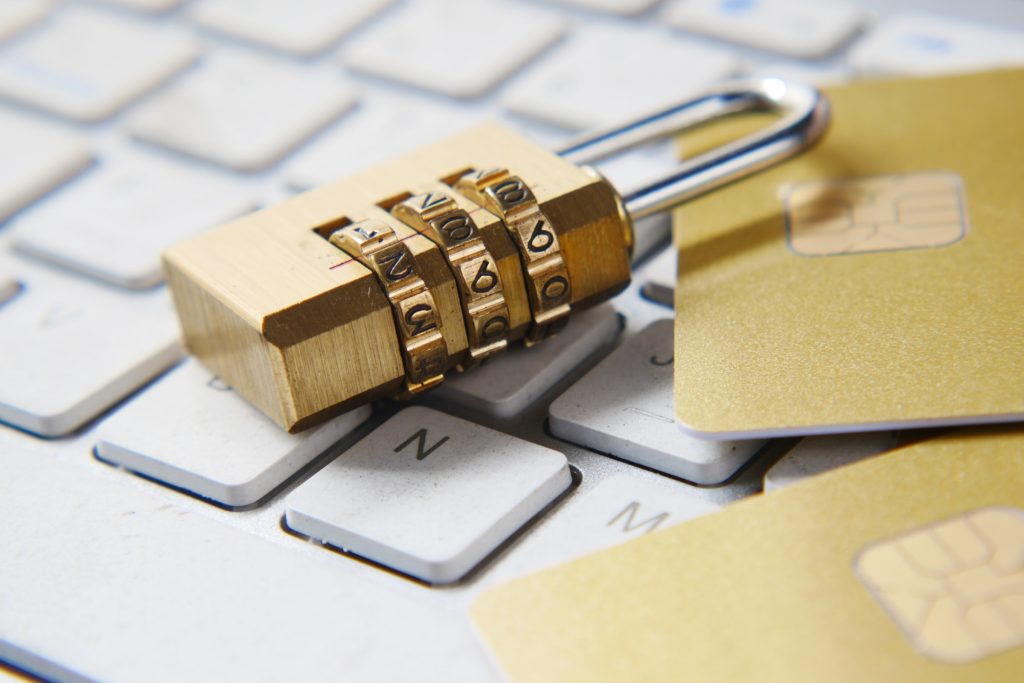As a business owner, you may have a lot on your plate. From managing employees and finances to developing products and services, it can be easy to overlook the importance of securing your business against potential threats. Whether it’s data breaches, theft, or other malicious activities, securing your business can help protect your assets and reputation. Here are some things you can do right now to secure your business:
What Does Security Mean for Business Owners?

One of the most important things you can do to secure your business is to update your software and hardware regularly. This includes everything from your computer operating systems to your anti-virus software to your router and other network hardware. Keeping everything up-to-date helps to ensure that your systems are protected against the latest threats and vulnerabilities. It’s also a good idea to invest in a good firewall, which can help to prevent unauthorized access to your network. You can take a Cyber Security Course by Edapp to learn how you can use cyber security practices in your business and secure it.
Another important aspect of securing your business is to implement strong access controls. This means ensuring that only authorized individuals have access to sensitive information, systems, and resources. You can create strong passwords and require employees to change them regularly. Consider using two-factor authentication, which requires users to provide two forms of identification before they can access your network or applications.
Why is Training Employees Essential?
Training your employees on security best practices is also essential for keeping your business secure. This includes educating them on how to spot phishing scams, create strong passwords, and avoid clicking on suspicious links or downloading unknown files. You should also establish clear policies and procedures for handling sensitive data and ensure your employees understand the consequences of not following them.
Finally, it’s a good idea to have the plan to respond to security incidents. This includes having a team of experts who can investigate and remediate any breaches or attacks. You should also have a plan for communicating with your customers, suppliers, and other stakeholders in case of a breach. Being proactive and prepared can minimize the damage caused by a security incident and get your business back up and running as quickly as possible.
1. Train your employees
Your employees are the first line of defense regarding securing your business. This is why providing them with the training and resources they need to recognize and respond to potential threats is important. This may include teaching them about password security, phishing scams, and other common tactics used by cybercriminals. Educating your employees can help reduce the risk of a data breach or other security incident.
2. Use Strong Passwords

Strong passwords are essential for securing your business’s online accounts and systems. This means using a mix of letters, numbers, and special characters and avoiding common phrases or easily guessable information such as birthdays or pet names. Additionally, it’s important to use a unique password for each account and to change them regularly. Consider using a password manager to help you keep track of your passwords and ensure they are strong and secure. You should keep your data safe from hackers if you want to more secure business management, you should use strong passwords and tools to follow data security measures.
3. Update Your Software
Outdated software can leave your business vulnerable to security breaches and other threats. This is why it’s important to keep your operating systems, applications, and other software up to date with the latest security patches and updates. This can help address known vulnerabilities and reduce the risk of an attack. With Systeme.io you can launch your online business for free and enjoy the full experience. You can run your online business and follow all the security guidelines.
4. Back-Up Your Data
Regularly backing up your business’s data is an important part of securing your assets. This means creating copies of your data and storing them in a secure location such as an external hard drive or cloud-based service. In a data breach or other incident, having a backup can ensure that you can quickly restore your data and minimize downtime.
5. Secure Your Network

Your business’s network is another area that requires attention regarding security. This means using firewalls, anti-virus software, and other security measures to protect your network from potential threats. Additionally, limit access to your network and systems to authorized personnel only.
6. Email Marketing
Email marketing is a powerful tool for businesses looking to connect with their customers and promote their products or services. With email marketing, businesses can reach a large audience quickly and cost-effectively. They can also personalize their messages to target specific groups of customers and track the success of their campaigns through analytics. However, it’s important to use email marketing responsibly and with customers’ permission. Businesses should focus on building their email lists organically and avoiding spamming their subscribers. They should also ensure that their emails are visually appealing, mobile-friendly, and contain valuable content that engages their audience. By following these best practices, businesses can use email marketing to build strong relationships with their customers and drive sales. Use SPF Lookup to perform a quick SPF record check within seconds in this way you can take your email marketing to the next level.
7. Secure your Employees’ Data
As long as you strive to preserve your client’s privacy as a business owner, know that your employees are also humans. They deserve some privacy too. You can attain more security and stability in business if you prioritize protecting your employees’ data. This enables you to retain them. No one wants to be an employee where personal and sensitive information is leaked in the blink of an eye.
Undoubtedly, when employees’ sensitive information is leaked, it does not only affect the individuals in question. The company where the breach took place is also involved. Take Snapchat as an example. In 2016, an employee data breach occurred. Hackers tampered with the payroll of 700 current and former employees. As expected, it was a dent in the company’s reputation.
What’s more, employee data protection is essential for businesses that aim to comply with international privacy laws. The HR department or related departments vested with the responsibility to safeguard employees’ data in your organization must strive to put structures in place to better manage and protect employees’ data and privacy.
Employee Mental Health Security and Why It’s Important for Business Owners
While the above steps are critical for securing your business against external threats, it’s also important to consider the mental health security of your employees. The term “mental health security” refers to the steps businesses can take to support their employee’s mental health and well-being. This is important because a healthy and motivated workforce can help businesses to thrive and succeed.
Some ways that business owners can support the mental health security of their employees include:
- Encourage Work-Life Balance: Encouraging work-life balance can help reduce employee stress and burnout. This may include flexible work arrangements such as remote work or flexible hours. Additionally, consider encouraging employees to take regular breaks and to disconnect from work during non-working hours. Based on your country you should also follow the labor laws to understand how you can manage employees time tracking. Labor Laws in the US cover the key takeaway for successful time tracking and management, which will be beneficial for you.
- Provide Resources for Mental Health Support: Providing resources for mental health support can help employees to access the care they need. This may include offering an employee assistance program (EAP) or providing access to mental health services through a health plan. Additionally, consider training managers and supervisors to recognize the signs of mental health issues and to provide appropriate support and resources to employees. You can also plan to purchase 3 wheels e trikes by Sixthreezero to foster healthy lifestyle in the workplace and improve your employees mental health.
- Foster a Positive Workplace Culture: Creating a positive workplace culture can help promote mental health and well-being among employees. This may include encouraging open communication, providing professional growth and development opportunities, and recognizing and rewarding employees for their contributions. Additionally, consider promoting a healthy work-life balance by offering wellness programs such as yoga classes or on-site fitness facilities.
- Address Workplace Stressors: Workplace stress can majorly contribute to employees’ poor mental health. As a business owner, it’s important to identify and address workplace stressors to help reduce the risk of burnout and other mental health issues. This may include offering training and support to help employees manage their workload, addressing workplace conflicts or issues, and providing opportunities for social support and team building.
Final Notes
In conclusion, securing your business is not a one-time task but an ongoing process that requires constant attention and effort. By implementing the measures outlined in this article, such as regular software and hardware updates, strong access controls, employee training, and incident response planning, you can help to ensure that your business remains secure against a constantly evolving threat landscape. Remember, the consequences of a security breach can be severe, including loss of revenue, damage to your reputation, and legal liabilities. Therefore, investing time and resources in securing your business is crucial for its long-term success. So take action now and implement these best practices to secure your business!



